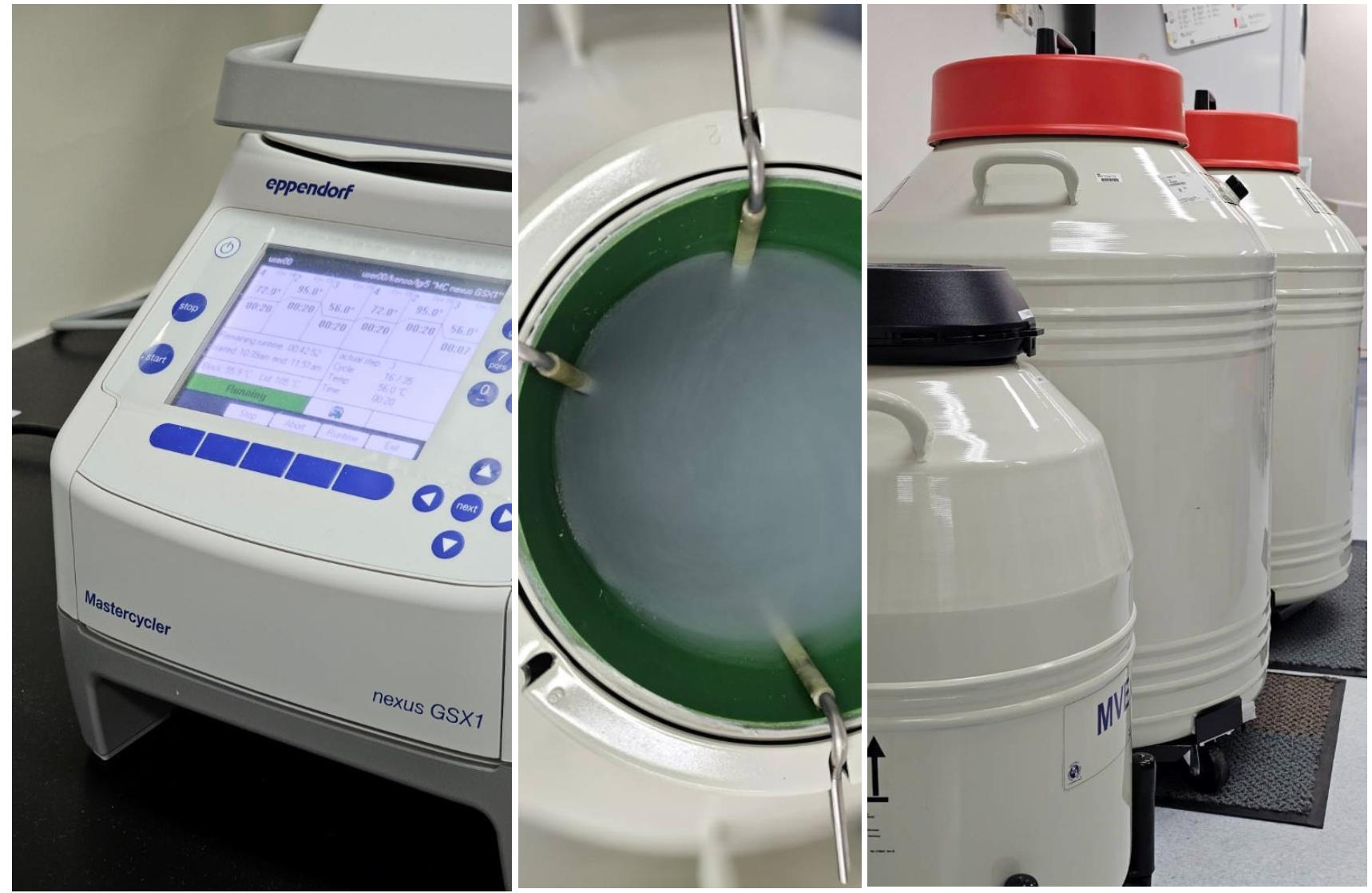Transgenic Core Facility
About Us
The Transgenic Core Facility (CCMR TCF), being a part of the Centre for Comparative Medicine Research, supports the LKS Faculty of Medicine in research by not only preserving valuable transgenic mouse lines through embryo/sperm cryopreservation, and re-derivation and rescue of mouse colonies using assisted reproductive technology; but also generation of novel transgenic and gene targeted mice for researchers to study various disease models. The facility also maintains a repository of reagent mouse lines for principal investigators to generate mutant/ transgenic mice in research to study disease pathogenesis and gene interaction in vivo. The mission of TCF is to provide an efficient centralized service to support the HKU’s cutting-edge research involving genetically modified animals.
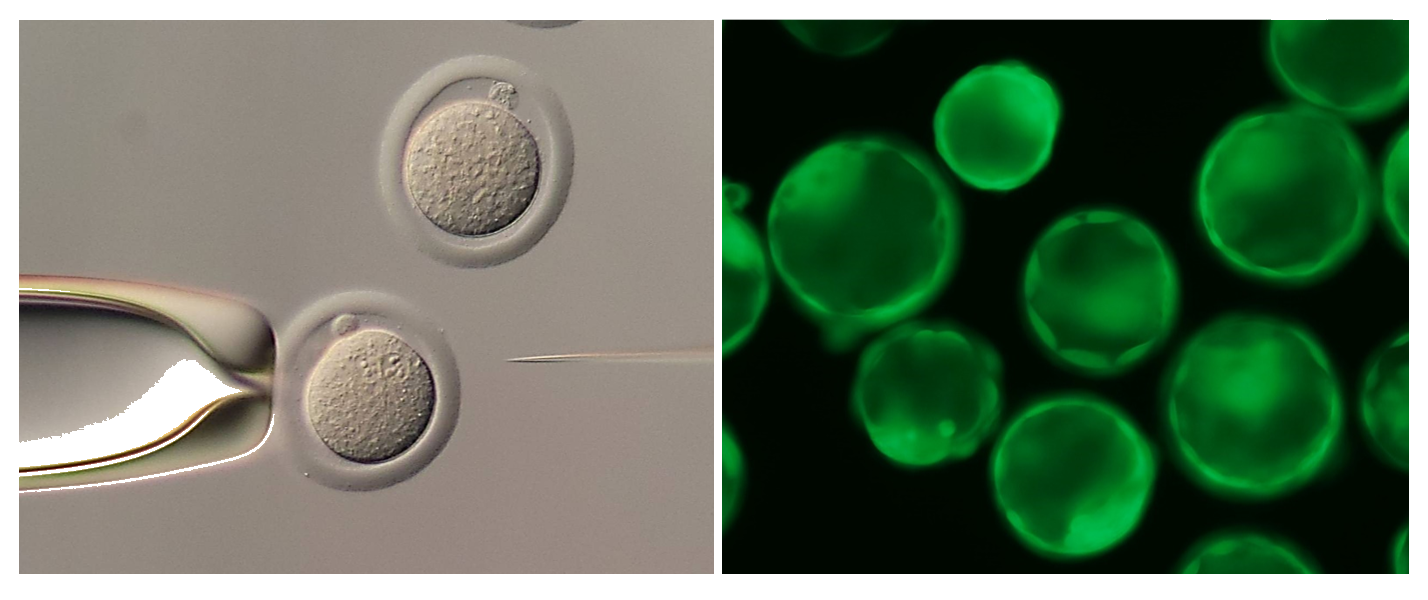
Our services
Transgenic Core Facility (TCF) provides centralized services including mouse strain archive and gene editing. We provide services on embryo/sperm cryopreservation, in-vitro fertilization (IVF), and embryo/sperm rederivation of mouse colonies. To generate genetically modified animals, we provide pronuclear DNA injection (transgenesis), and ES cell-morula injection. Furthermore, we also provide gene edition services, e.g. in del, point mutation, and Knock-In by using CRISPR/Cas9. Collaboration with new or specific technical development is also welcome.
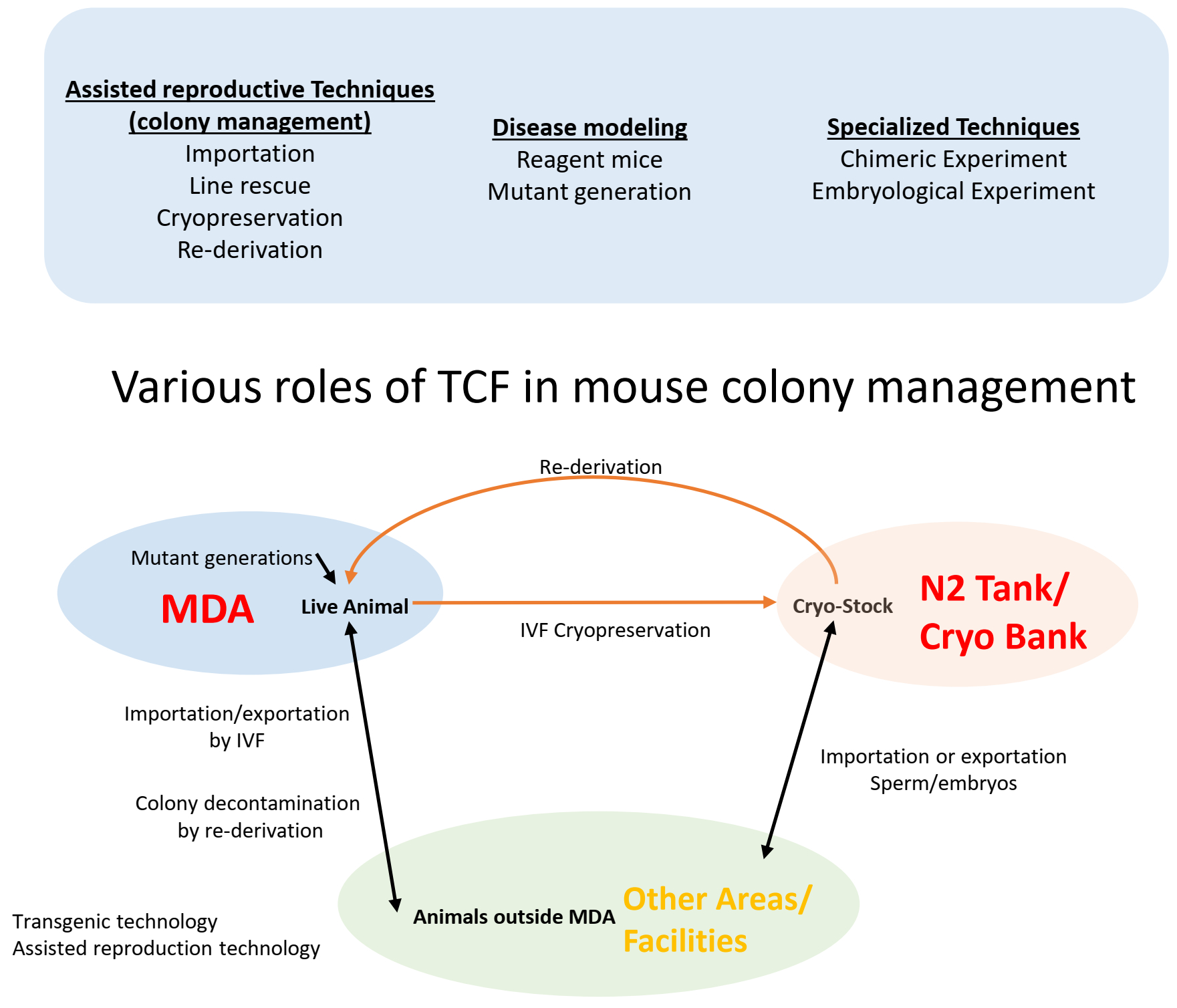
Facility and Equipment
Micromanipulation station
The micromanipulator is a device used for precise positioning and manipulation of embryos. By the use of mechanical probes, precise and delicate tasks such as microinjection of transgenes stem cells, or sperm into the embryos are made possible. When combined with microinjectors, piezodrills, genome editors, and fluorescent microscopy, these manipulators enable us to provide high impact and specialized procedures on rodent embryos to all HKU researchers.
We create transgene overexpressing strains through DNA microinjection, generate new mutant strains by injecting ES cells, and produce knockout strains or other mutations (such as deletion/point mutations/insertions) in one step using CRISPR/Cas9.
In addition, we can rescue precious mouse strains by utilizing the piezodrill for intracytoplasmic sperm injection. This technique is particularly useful for strains that are difficult to breed or have low fertility rates. By utilizing the micromanipulator and other advanced technologies, we help HKU researchers to achieve your research goals and advance your scientific discoveries.
+Micromanipulators
OLYMPUS IX 73 Inverted microscope with DIC and fluorescent filters
ZEISS Inverted microscope with PlasDIC
-TransferMan 4r Manipulators
-Celltram Microinjectors,
-FemtoJet 4i
-PiezoXpert

Laser Objectives
Hamilton Throne XYCROS

Micropipette Production Tools
Narishige MF2 Microforge
Narishige EG-402 Microgrinder
Sutter P97 Puller

Genome Editor
BEX CUY21EDIT II Pulse Generator (Square Wave electroporator)
5mm Gap Platinum Electrode
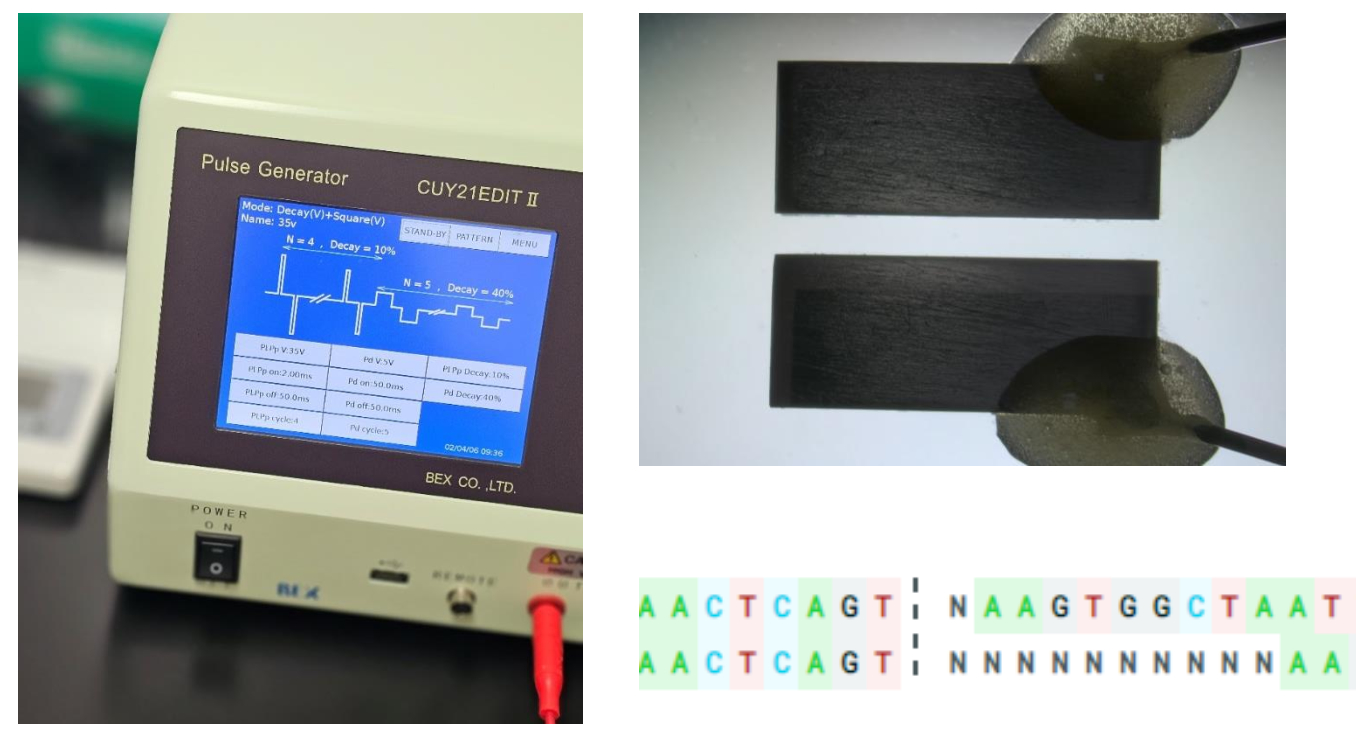
In vitro fertilization and Surgical stations
In vitro fertilization (IVF) is a technique used in mouse research to generate embryos outside the female mouse’s body. It allows the fertilization to occur in a controlled environment. This procedure allows a large number of fertilized embryos to be produced at the same time . These embryos can be cryopreserved and stored for many years, allowing for re-derivation of mouse lines when needed. It is also cost-effective to store a mouse lines in embryos cryopreservation rather than having them alive on the rack!
Re-derivation involves surgically transferring embryos from a mouse line to a surrogate mother and is particularly useful for managing large mouse colonies with multiple strains while minimizing animal housing needs. Researchers can request TCF to cryopreserve and re-derive their valuable mouse strains which help with the colony management.
The microscope is essential for visualizing the egg and sperm during the IVF process and for performing re-derivation/embryo transfer surgery. The high quality microscope enables our team to perform these procedures with the highest possible precision. Additionally, the use of a surgical station ensures a highly clean environment for embryo transfer, resulting in SPF graded re-derived animals.
+IVF and manipulations
ZEISS Stemi 508 inverted microscope with Axiocam 208 color camera
ZEISS Discovery v8
LEICA M80 wit TL5000 Ergo Transmitted Light Base
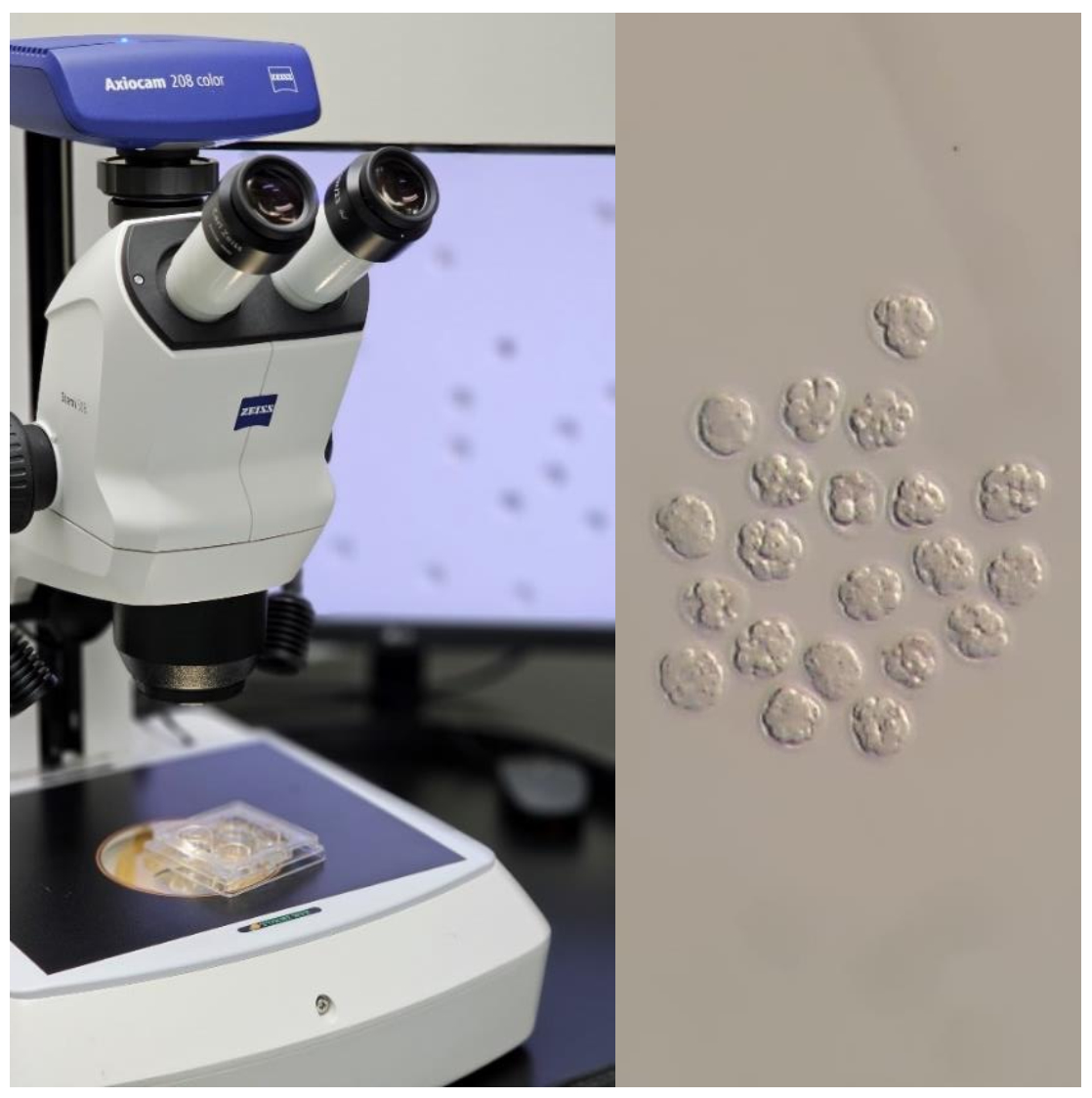
Surgical Clean Bench
Air Clean 600 PCR station
K-SYSTEM IVF Workstation L124
TECNIPLAST Recovery Unit

Stem Cell culture and other services
TCF provides high-quality services for the culture of embryonic stem cells (ESCs) and gene editing in ESCs. We offer a range of services to support your research needs. Our facility is fully equipped that are solely dedicated to the culturing of stem cells. Our facilities ensure that the ESC cultures are maintained in a sterile and controlled environment, minimizing the risk of contamination.
In summary, we provide embryos and sperm cryopreservation, colony rederivation, and generation of genetic modified mice for researchers’ cutting-edge research. In addition, as simply as PCR genotyping, we will also be able to offer consultation on optimizing your PCR protocols to ensure reliable and accurate results if you encounter any difficulty.
Other equipment
Mastercycler Nexus GSX1 PCR machine
Thermo Fisher Locator 6 Plus Liquid Nitrogen tanks
MVE XC 34/18 Liquid Nitrogen tanks
